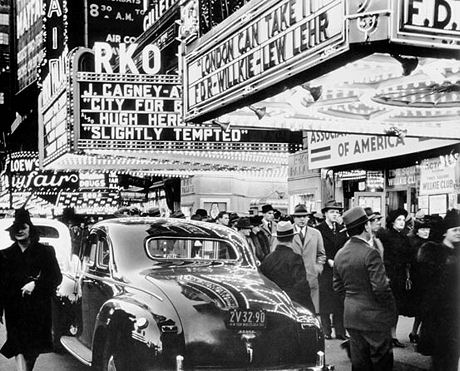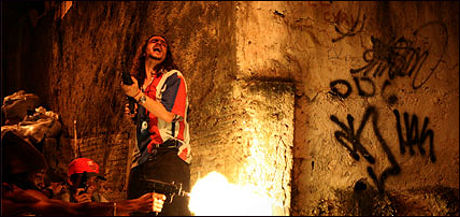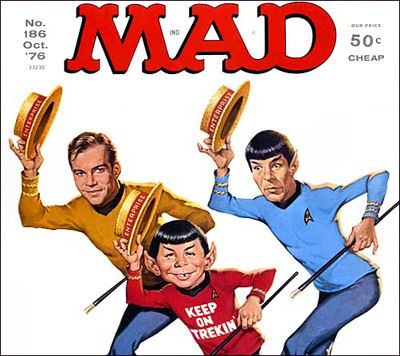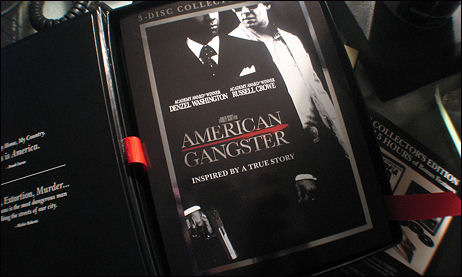I’m a fool for photos of Times Square marquees from the ’20s onward. Color, black-and-white…anything that looks sharp and clean and well-framed. I’ve heard about a coffee-table book devoted to such photos, but if anyone knows of any websites with a good assortment or even a site with a single decent shot of any of big marquees announcing any classic film (the Astor showing On The Waterfront, King Kong at the Radio City Music Hall or the Roxy…anything like that), please inform. All I’ve been able to find so far are inky dupes like the one below.
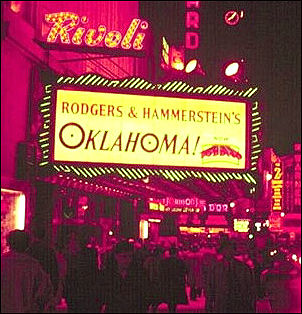
Here’s one passed along by Edward:
